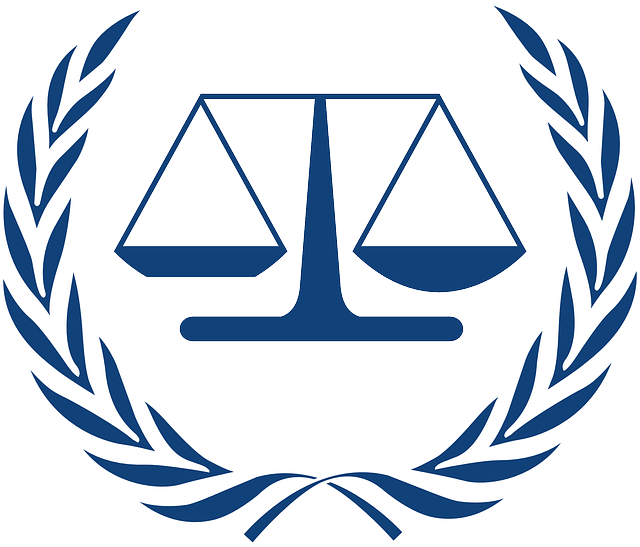Contempt adjustment requests are legal processes addressing non-compliance with court orders, emphasizing adherence to mandates for justice. Legal representation is vital, offering strategic defenses and advocacy. All parties must comply with orders, including injunctions and judgments, to maintain fairness and integrity in the legal system. Demonstrating compliance through documentation and clear arguments is key to successful defense. Timely legal action ensures fair outcomes, resolving disagreements and protecting rights.
“Legal representation plays a pivotal role in navigating contempt adjustment requests, where parties seek modifications to court orders. Understanding these requests and the obligations tied to them is essential. This article delves into the intricate dynamics of contempt cases, highlighting the significance of legal counsel. We explore strategies for effective defense, emphasizing the impact of timely legal action on outcomes. By examining compliance with orders as a key aspect, readers gain valuable insights into managing and resolving contempt adjustments successfully.”
- Understanding Contempt Adjustment Requests
- Role of Legal Representation in Contempt Cases
- Compliance with Orders: Obligations for All Parties
- Strategies for Effective Legal Defense
- The Impact of Timely Legal Action
Understanding Contempt Adjustment Requests

Contempt adjustment requests are legal processes where individuals or entities seek to modify or enforce existing court orders related to contempt issues. This typically arises when there is a perceived failure to comply with specific mandates, requiring intervention to ensure justice and maintain the integrity of legal proceedings. Such requests demand a nuanced understanding of both the initial order and the unique circumstances surrounding non-compliance.
The core focus of these adjustments is to address situations where parties might intentionally or inadvertently violate court-mandated obligations. It’s crucial for legal representatives to guide their clients through this process, ensuring not only adherence to orders but also a fair and transparent resolution. Effective representation involves thoroughly examining the reasons behind non-compliance, presenting compelling arguments, and proposing realistic adjustments to rectify the contempt while promoting long-term compliance with legal requirements.
Role of Legal Representation in Contempt Cases

Legal representation plays a pivotal role in contempt adjustment requests, ensuring fairness and due process throughout the proceedings. When an individual or entity is accused of violating a court order, having competent legal counsel becomes paramount. Lawyers specializing in contempt cases offer invaluable guidance, helping clients navigate the complex legal landscape surrounding non-compliance with orders. They meticulously examine the facts, assess the applicable laws, and develop strategic defenses or arguments to advocate for their client’s interests.
Effective legal representation enables parties to present their case persuasively while adhering strictly to the procedural rules. Counsel can challenge the validity of the alleged contempt, question evidence, and offer alternative interpretations, thereby protecting their client from unjust accusations. Moreover, legal professionals ensure that all documentation is accurately prepared and filed, facilitating compliance with court mandates and promoting a transparent resolution process.
Compliance with Orders: Obligations for All Parties

All parties involved in a legal dispute, whether individuals, organizations, or corporations, have a fundamental responsibility to comply with court orders. This includes adhering to injunctions, judgments, and any other directives issued by the presiding authority. Non-compliance is a serious matter that can lead to severe consequences, including contempt of court charges.
Compliance with orders is not merely about respecting legal procedures; it ensures the fairness and integrity of the justice system. When all parties fulfill their obligations, it fosters an environment where decisions are executed promptly, minimizing delays and potential harm to other stakeholders. Effective compliance facilitates a smoother resolution process, ultimately contributing to a more efficient and just outcome for everyone involved in the legal proceedings.
Strategies for Effective Legal Defense

When facing contempt adjustment requests, a robust legal defense strategy is paramount. One key aspect is demonstrating compliance with orders. This involves providing concrete evidence and records showing adherence to previous court mandates. Legal representatives can employ several effective tactics. Firstly, they should meticulously compile all relevant documents, including order confirmations, court correspondence, and proof of actions taken. Secondly, presenting a clear and concise argument outlining the steps taken to meet the court’s requirements is crucial.
Additionally, lawyers can challenge the request by questioning the validity or interpretation of the original orders. This may involve legal precedents, constitutional considerations, or procedural errors. A well-prepared defense that prioritizes both compliance and legal technicalities can significantly strengthen the client’s position in such proceedings.
The Impact of Timely Legal Action

Timely legal action is paramount in contempt adjustment requests, as it significantly influences the outcome and fairness of the process. When a party involves legal representation to address non-compliance with orders, prompt action can prevent further escalation of the issue and foster a more cooperative environment. Legal professionals are adept at navigating complex legal frameworks, ensuring their clients’ rights are protected while adhering to the rules governing contempt proceedings.
Early intervention through legal representation allows for a structured approach to resolve disagreements or misunderstandings regarding order compliance. This proactive measure not only helps in achieving desired outcomes but also demonstrates a commitment to upholding the integrity of the judicial system. Effective legal strategies can lead to amicable resolutions, ensuring both parties’ interests are considered while maintaining compliance with court-mandated orders.






